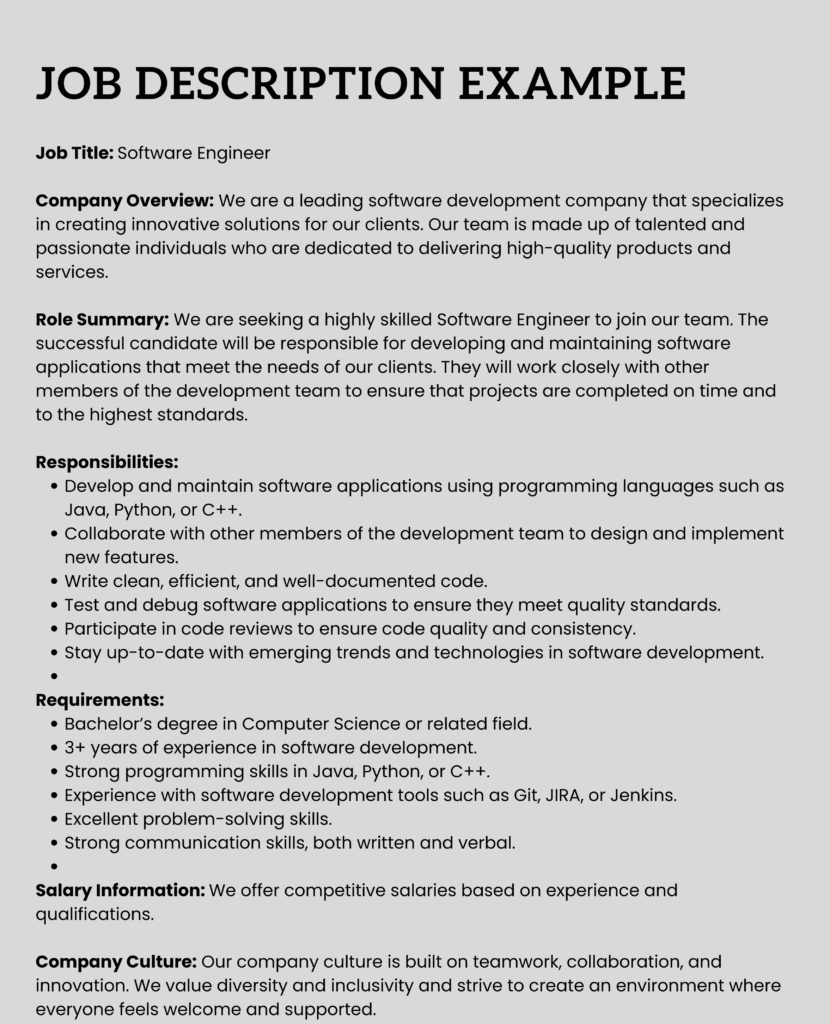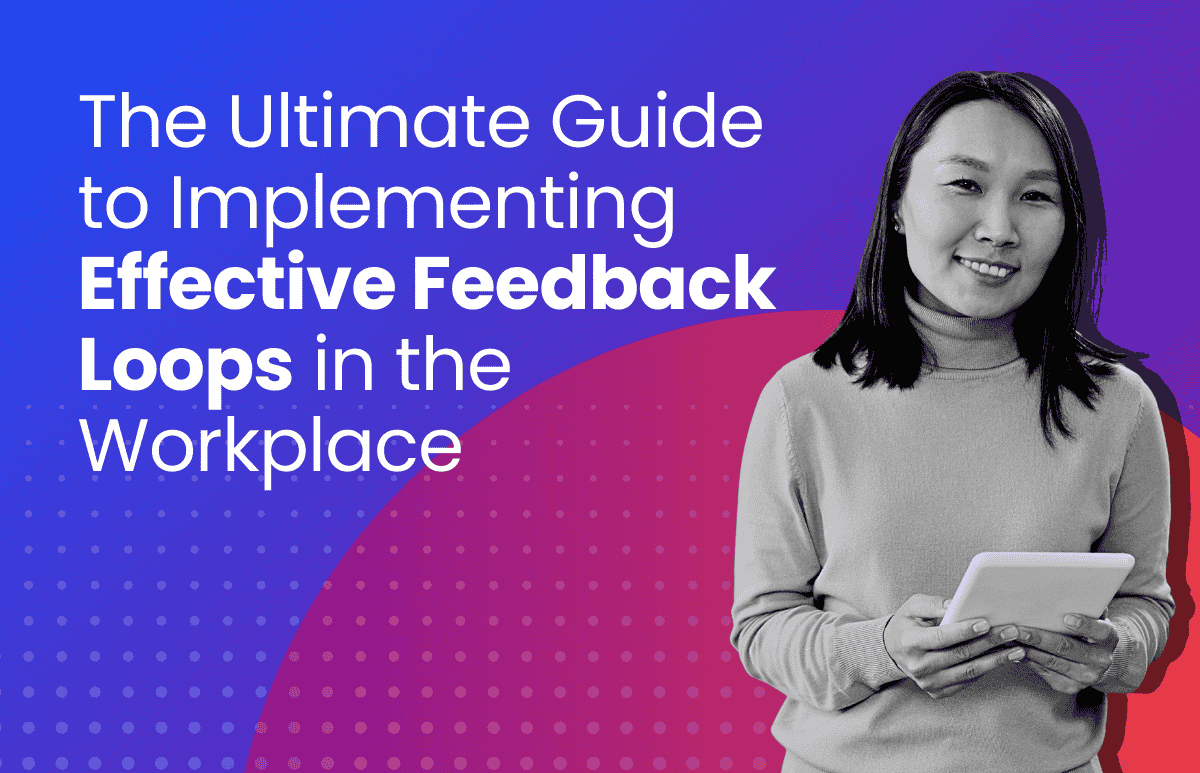How to Write Detailed Job Descriptions To Attract Top Talent
A well-written job description is essential for organisations looking to recruit top talent in Australia.

It clearly defines the job role, requirements, responsibilities and work environment. This allows you to attract qualified candidates who are excited about the position. In this article, we’ll explore how to craft an effective job description that gets results.
What is a job description?
A job description is a necessary document that details a job’s key duties, capabilities, compensation, terms, conditions, and work environment. It serves several key purposes:
- Recruiting: The job description tells candidates what the job is about so they can decide if they are a good fit. This helps attract suitable applicants.
- Onboarding: New hires can use the job description to learn about their main duties and the terms of their employment.
- Performance Reviews: Hiring managers can use the job description to provide feedback and set goals based on outlined duties.
- Compensation: Job descriptions help determine appropriate pay ranking.
In summary, the job description explains the role, sets consistent expectations, and ensures legal compliance.

How to write a detailed job description
Writing a job description can be challenging. Here are some tips to help you craft a compelling one on the job board:
Start with a clear job title
The first step in writing a detailed job description is to start with a clear job title. The title should be short and tailored to specific roles in the industry. Job seekers are also likely to search based on the title of the open position they are interested in.
- Job title – Keep it simple so candidates can find it easily in searches.
- Overview – Summarise the role in 2-3 sentences. Cover the position’s purpose, key duties, and importance to your company.
Include company mission
Include a company description or mission but keep it to about two to four sentences. At the same time, make sure it’s compelling enough to attract top talent.
Write job duties, roles and responsibilities
Write a summary of the role that includes an overview of what the position entails. This section should be no more than two paragraphs long.
List out the responsibilities associated with the position. List any specific tasks or projects that the candidate will be responsible for.
- Use bullet points to break up text and make it easy to read.
- Start each point with an action verb (e.g. manage, oversee, coordinate).
- Quantify responsibilities where possible (e.g. make 50+ outbound calls per day).
- Order duties from most to least important.
- Specify how the role contributes to broader team or company goals.
Define required capabilities
Define the requirements skills and experience associated with the position. This includes education level, years of experience required, certifications needed, etc.
- Hard skills – Specific technical expertise or knowledge (e.g. software proficiency, languages, certifications).
- Soft skills – Important abilities like communication, time management, and problem-solving.
- Education and experience level.
- Any other legal or physical requirements.
Preferred capabilities (Optional)
List additional experience that would enable candidates to exceed expectations, such as:
- Years of experience in a similar role or industry.
- Knowledge of your company and products.
Keep this section brief – only include abilities that would give an applicant an edge.
Include compensation and benefits
Include salary range if possible. This can attract excellent employees by giving them an idea of what they can anticipate in pay and employee benefits.
Work arrangement
Specify key details upfront like:
- Full-time or part-time role
- Work location – remote working, hybrid, or in-office
- Any travel requirements
Highlight company culture
Highlight your company culture in your job description by including information about your values or mission statement.
Give candidates a feel for your workplace culture and perks like:
- Company mission, values, and culture
- Professional development opportunities
- Unique company perks
How to apply for the role
Close your job description by clearly stating how to apply, including:
- Where to submit their application
- List of documents needed (e.g. CV, cover letter, portfolio)
- Application deadline
Other tips
- Check for Errors
- Use gender-neutral language throughout your job description to avoid any potential bias.
- Avoid Jargon and Acronyms
- Review and Update Regularly
- Get Stakeholder Input
By mastering how to write detailed and compelling job descriptions, you’ll attract qualified candidates and set proper expectations from the start. Use these tips to showcase roles at your company in the best possible light.
How to structure the job description (checklist)
The job description should have a format that makes it simple for candidates to quickly read and understand the job’s responsibilities. Follow these best practices for structuring your job descriptions:
Use clear headings
Divide the different sections of the job description with clear headings. Common headings include:
- Job Title
- Location
- Role Summary
- Responsibilities and Duties
- Requirements
- Preferred Skills
- Compensation and Benefits
The use of concise headings makes it easy for candidates to navigate and find the information they need at a glance.
Organise content using bullet points
Within each section, make use of bullet points to break up large blocks of text. Bullet points:
- Improve readability
- Help candidates quickly identify key points
- Highlight the most critical info
Prioritise and order the bullets from most to least important.
Keep descriptions brief
Avoid excessive detail and keep descriptions brief. Candidates are more likely to read a job description that is succinct and skimmable.
Use clear, simple language and keep sentences short. Quantify responsibilities and requirements where possible.
Use a consistent tone
Maintain a consistent tone that aligns with your employer brand throughout the job description. The tone should strike a balance between professional and friendly/conversational.
Include visuals (Optional)
Consider adding visuals like charts, icons or graphics to make your job descriptions more visually engaging. For example, you could include:
- An organisational chart
- Icons to highlight benefits
- A photo of your office space
Visuals help break up large sections of text. However, make sure they don’t draw attention away from important information.
Job description example

The value of exceptional job descriptions
Taking the time to write outstanding job descriptions provides immense value. They help attract great candidates by providing a clear picture of the role and setting precise expectations for responsibilities and capabilities. Candidates can assess if the job is a good match for their skills and interests.
Detailed job descriptions also ensure legal compliance and minimise the potential for confusion down the line. Get applicants to sign the job description before hiring to confirm they understand the duties and responsibilities.
While job descriptions focus on skill sets, duties and working conditions, position descriptions emphasise objectives, responsibilities and competencies. Both are valuable for the recruitment process and employee performance management.
 HR Core
HR Core 









